Small Talk, My Animal, online exhibition review: ‘A return to the root of human existence’
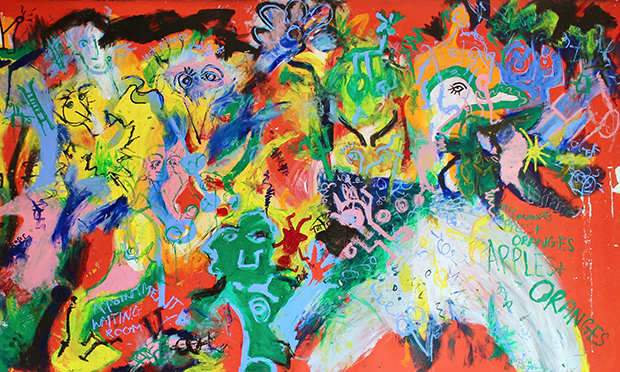
Emerging artist Molly Morphew, based in Stoke Newington, has curated an online selection of multimedia pieces from 12 artists, including her own work, and invites you to visit.
“Settle in, kick off your shoes, find a favourite spot – make yourself at home,” she writes on the exhibition’s website.
Originally from Sydney, where she trained at the College of the Arts, Morphew found herself “craving something more” and so upped sticks to London 18 months ago.
Since then, she has found success in group shows and performances across the capital and will feature in a showcase at the Barbican, provisionally postponed to October.
Morphew had the idea for a “real” exhibition a while ago, intending to create “an opportunity and a platform for myself as an emerging artist, as well as others who I see a lot of potential in” – but the timing didn’t seem right. Until lockdown, that is.
Small Talk, My Animal, which launched on Zoom last week, includes work by artists from around the world and spans acrylic and oil painting, collage, sculpture, photography, performance art videos, and poetic text.
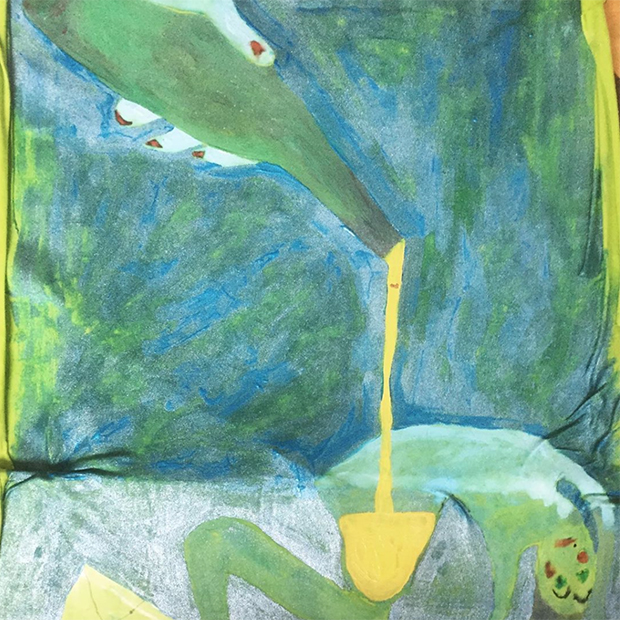
The pieces are tied together by a back-to-basics approach; the ‘Small Talk’ of the title refers to the everyday, the mundane, while ‘My Animal’ alludes to the human being, the individual.
The idea is to strip away all artifice and return to the root of human existence. The artists explore both their own vulnerabilities and the quotidian details of their lives.
Apolonia Dorabialski’s acrylic-on-fabric works elevate the everyday, memorialising events such as pouring a glass of wine or eating out in a restaurant. This is particularly apt in a time when we are all learning to take pleasure from the smaller things in life.
Meanwhile, Robin Leverton’s offbeat performance piece Collapse and the media offers some light relief. Only 10 seconds long, the video shows Leverton standing in front of the iconic BBC London building before collapsing, as if in a faint, to the ground.
According to the website, Leverton’s “absurd isolationist humour offers relief in simplicity”, but his performances also “confront daunting socio-political structures” – such as the BBC.
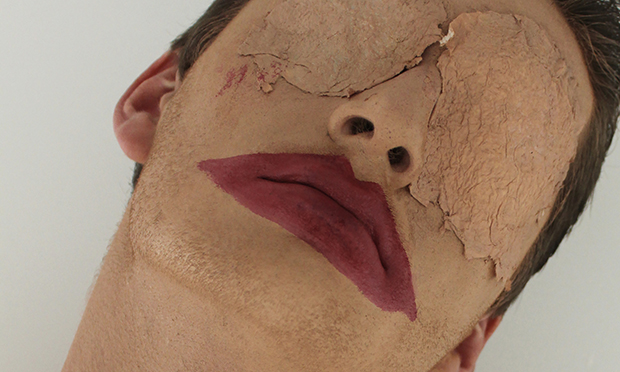
Image: courtesy Molly Morphew
One of the most striking contributions comes from Damien Rouxel, whose series of four photos playfully explores identity and its expression, zoning in on the performance of gender.
Two of the photos are self-portraits. Grandmother, mother, here I am as you dreamed me shows Rouxel with bloated Joker-esque lips, recalling many a drag queen stereotype, and some kind of clay or congealed makeup completely covering his eyes.
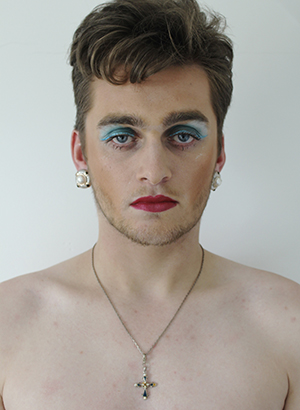
Image: courtesy Molly Morphew
It makes sense only when combined with the next photo, titled simply Selfportrait. In this beautiful headshot, we see a crucifix necklace over a bare torso, bright blue eye shadow, costume pearl earrings and fuchsia lipstick.
Far from the grotesque nightmare in the first photo – which seems to allude to family worries about gender non-conformity – the effect of this second photo is both striking and tasteful.
Together, they make an important and powerful point about the preconceptions that society forms about anyone who does things differently.
Morphew’s own contributions are also arresting, particularly her own Self-portrait and Apples and Oranges. Colourful and abstract, both include images of birds, which Morphew is fascinated by, saying that they can teach us to “let go of the weight we carry from our past”.
While these are created in traditional media – acrylic, oil pastel, paper and canvas – Morphew is no stranger to experimentation.
The second half of her contribution is a performance art piece she calls Still human; her very first creation at art school. The piece is formed of two videos, filmed concurrently, which combine to create around 11 minutes of footage.
Each video shows Morphew, barefoot and dressed only in a white slip, standing stock-still at a busy junction on Sydney’s Pitt Street and staring straight ahead of her.
It’s 8am, commuter-time; people glance, look, and even stare – but they have work to get to. They move on. Morphew chose the time deliberately; she wanted traffic moving in the background, people passing through.
In the first video, the performance ends only when she turns and walks away. In the second, she doesn’t get off so lightly – a bucket of “ice-cold” water is thrown over her from out of shot.
I’m not sure I fully ‘get’ these videos, but Morphew explains that the piece is about “the uncertain and the vulnerable being” and that certainly does come across.
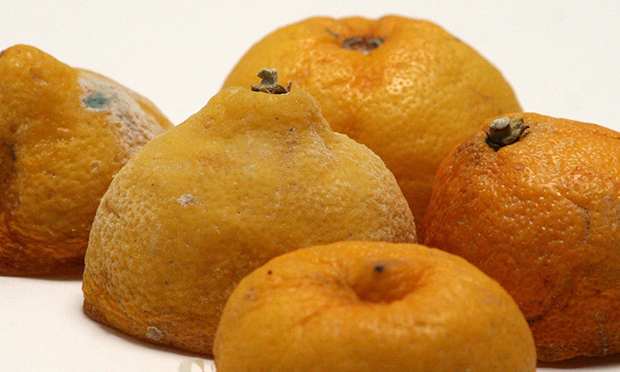
Melinda Fourn’s contribution to the exhibition is Untitled (Lemons), two photos of halved lemons. They are old, shrivelled – some mould is growing on the one at the back.
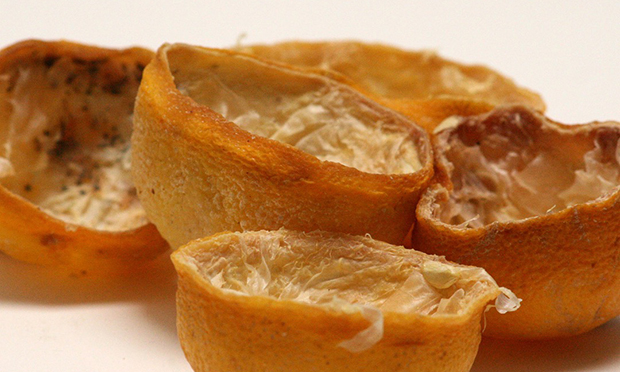
The website says that Fourn “reignites the sensory power of the discarded, allowing our ‘detritus’ to live again”.
This reflects a preoccupation in Morphew’s own work. She describes herself as using “a lot of waste and ‘found’ objects” in her practice.
There is an obvious environmental interpretation here, with points to be made about our throwaway culture and the way in which we assign value to some objects and not others.
More widely, using discarded ‘waste’ as a creative medium makes a point about the accessibility of art, something Morphew talks passionately about.
“I find the art world can be very pretentious and not always accessible to everyone and that sort of drives me crazy,” she says.
“I wanted to create the space for the audience to feel really welcomed and comfortable and I want it to be quite relatable.”
As a free, online exhibition, her project could hardly be more accessible.
Small Talk, My Animal runs until 24 May, and you can see it for yourself here
